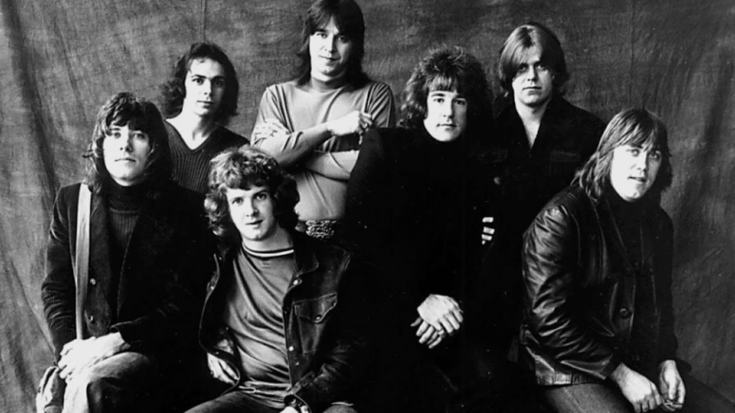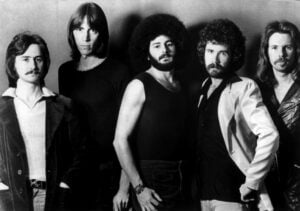On This Day in 1972: Chicago Receives a Gold Record for Their First Billboard 200 Chart-Topping Album

via Georgy Porgy's Favorites / YouTube
First Number One and Gold Award
On July 31, 1972, Chicago received a Gold record for their first album to reach No. 1 on the Billboard 200—Chicago V. The album, released on July 10, 1972, marked a change in the band’s output: it was their first single‑disc release after three double albums and a four‑LP live set. The award recognized strong sales that pushed the album to multi‑platinum status over time.
Chicago V stayed atop the Billboard pop chart for nine weeks, becoming the first of five consecutive albums by the band to reach the top spot. The award on July 31 reflected this success, with the album quickly earning the industry’s Gold certification.
James Pankow, Chicago’s trombonist, spoke about the album’s more focused format:
“About the time of that release, radio had started changing,” … “This band has never said, ‘Let’s sit down and write an album of hit singles.’ That’s just not the way we do things.”
View this post on Instagram
Hit Single and Chart Success
A key track from the LP, “Saturday in the Park,” reached No. 3 on the Billboard Hot 100 in September 1972 and climbed to No. 2 on Canada’s RPM chart. Despite its North American success, the song did not make an impact in the UK market.
This single became Chicago’s first Gold single in the U.S. after selling over a million copies. It helped strengthen the album’s reach and made the band a household name in the rock and pop scene of the early 1970s.
Walter Parazaider, who played saxophone and flute, recalled how “Saturday in the Park” came to life:
“I was rooming with him, and we were in Manhattan on the Fourth of July … Robert came back to the hotel from Central Park very excited … I said, ‘Man, it’s time to put music to this!’”
Creative Shift and Production
Chicago V saw Robert Lamm contribute eight of the ten tracks, including “Saturday in the Park.” The band reduced long instrumental suites in favor of more focused songs. This shift helped define a more direct sound and commercial appeal.
The album was recorded in less than a week and produced by James William Guercio. It was designed to be concise yet strong, with radio‑friendly tracks that still retained the band’s signature horn arrangements.
Lee Loughnane, the trumpet player, explained the economic reasoning behind the change:
“One thing that really changed music in a major way is the way that we were paid on song copyrights … companies decided that they were only going to pay on ten copyrights per record no matter how many songs there were.”
Breaking New Ground
Chicago V broke new ground as Chicago’s first chart‑topping album, a turning point that led the band toward sustained popularity. Its success set the stage for a string of number‑one albums in the years that followed.
The Gold certification confirmed that Chicago V was not just a hit—it sold well, resonated with audiences, and fueled the band’s rise in rock history. The era marked a tight shift in style without losing the musical complexity fans expected.












